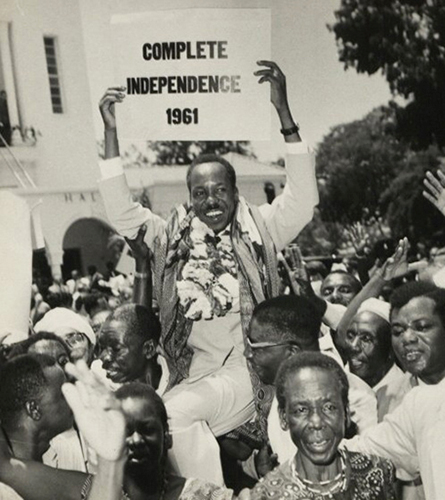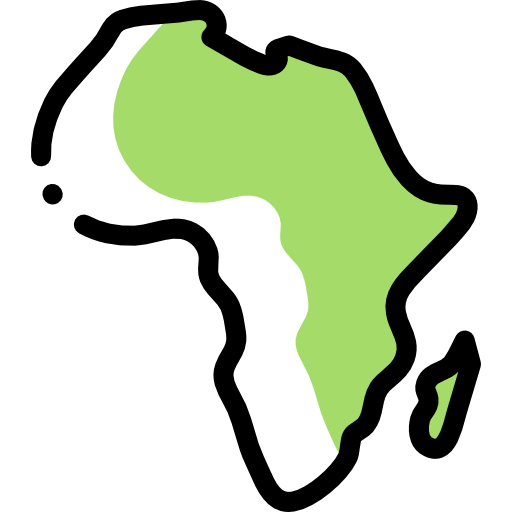JULIUS NYERERE AND THE INDEPENDENTIST MILITANTS
The 1950s saw a political evolution, but also the emergence, in France, of cartierism, a movement of thought that explained that colonies, instead of being a source of profit, were expensive, and that it was better to finance the mother country. The analysis is extended by the notion of the Dutch complex, which aims to demonstrate that the abandonment of colonies boosted the economy of the metropolis, taking the example of the Netherlands, which lost its colony of Indonesia at the end of the 1940s and experienced strong economic growth in the 1950s due to a reorientation of public spending and investment.
It was in this context that the decolonization movement began, which British Prime Minister Harold Macmillan referred to in 1960 as the "Wind of Change."
In 1951, defeated Italy was forced by the UN to grant independence to Libya, whose territory was occupied by French and British forces. The French protectorates of Morocco and Tunisia gained independence in 1956. Sub-Saharan Africa followed with the independence of the Gold Coast, which became Ghana in 1957, marking the beginning of a relatively peaceful and negotiated wave of independence that lasted until 1960. By its end, more than twenty countries had obtained their political emancipation, including most of the French colonies. From 1960 to 1965, it was mainly the British possessions (Nigeria, Tanganyika which became Tanzania, Kenya, Uganda, Northern Rhodesia, which became Zambia) that were concerned. The negotiations were more complicated there because of the strong presence of white settlers from Kenya or a great ethnic or religious diversity from Nigeria.


Tanganyika (now Tanzania) was granted independence from the United Kingdom on 9 December 1961, without any violence. Julius Nyerere was briefly Prime Minister during the monarchy and then became the first President of the Republic of Tanganyika following elections in December 1962.
Some instances of independence, however, are more wrested than negotiated. For Algeria, independence came in 1962 after a war that began in 1954. Southern Rhodesia became Rhodesia, then Zimbabwe-Rhodesia and finally Zimbabwe, unilaterally declaring its independence in 1965. The Portuguese possessions (Guinea-Bissau, Cape Verde, São Tomé and Príncipe, Angola, and Mozambique) experienced wars that only ended with the end of the Salazar regime, in 1974 and 1975, a period that also marked Spain’s abandonment of the Spanish Sahara (albeit with a disputed status). Other territories gained their independence later from non-European countries. Namibia had to wait until the end of apartheid in South Africa in 1990 to achieve independence. Eritrea, reunited with Ethiopia at the end of the Second World War, broke away in 1993 after thirty years of war. South Sudan seceded from Sudan in 2011.
For more information:
https://fr.wikipedia.org/wiki/Portail:Afrique
https://en.wikipedia.org/wiki/Africa
https://journals.openedition.org/etudesafricaines/
https://etudes-africaines.cnrs.fr/
https://www.afdb.org/fr/documents-publications/economic-perspectives-en-afrique-2024





